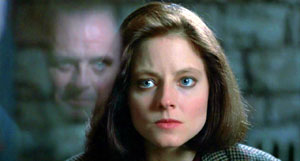Everybody
has, of course, heard of this modern crime classic. Many people have seen the
film. I’m not one of them. Intrigued by the many references to the book, when I
stumbled upon it in the charity bin of a local Co-op, I made my donation and
brought a copy home.
At
last, I’ve got around to actually reading it, and I’m glad I have.
For
me, fiction is made real and compulsive by the quality of its characters. I
mean by that not the natures of the people themselves but the depth and detail
gifted them by the author. The story is important, of course, but I find I’m
unable to enter a fictional world if I don’t care about at least one of the
primary characters. There was no such difficulty with this book. Crawford is
easy to empathise with, in spite of his hard-nosed sheath of self-protective
toughness. Dr Lecter is, of course, become the archetypal sociopath; a man more
concerned with demonstrating and playing with his intellect than he is with any
emotional connection. He is the epitome of the unfeeling genius. And in
Starling we have the caring, clever, resourceful, courageous, insightful and
strong young woman we can all so easily love. Chilton, of course, is the
selfish, cunning and sly man who everyone can as easily hate. And the antagonist,
who I won’t name for those few who have yet to come across this excellent work,
is a superbly drawn piece of human detritus mostly formed from his history but
choosing the path upon which he has set out destructively and without concern
for any but himself. The woman we encounter as his final victim is anything but
a stereotype, displaying courage, resourcefulness and a strength of character
that has the reader desperately urging the authorities to get to her before it’s
too late.
 |
| Clarice Starling (Photo credit: Wikipedia) |
I
had no idea what the story was really about and was surprised to find it dealt
with the hunt for a serial killer in quite the way it does. I’d more or less
expected to find a police procedural with little reference to emotion or
justice. That the book transcends its genre is clear almost from the first
page. I confess to some irritation with the US crime fighters’ jargon that
peppers some pages and leaves a UK reader, unfamiliar with police procedures,
somewhat confused. But the fact that such a stumbling block never even came
close to stopping me read is testament to the power of the story and the
characters who drive it.
The
denouement is expertly handled. Indeed, I deliberately put off finishing the
book at night for fear of having nightmares if I went to sleep on the ending. Read
in my lunch hour, the final chapters were no less powerful, the ending no less
satisfying than that late night read may have rendered them. The book finishes
in the only way it can. A satisfactory conclusion to a tale of pace, incident
and superbly engineered personal interrelationships.
I
enjoyed this book more than I expected to. Should I now watch the film? Will I
be disappointed? I don’t know. But the book is definitely worth the read and I
can thoroughly recommend it.


No comments:
Post a Comment